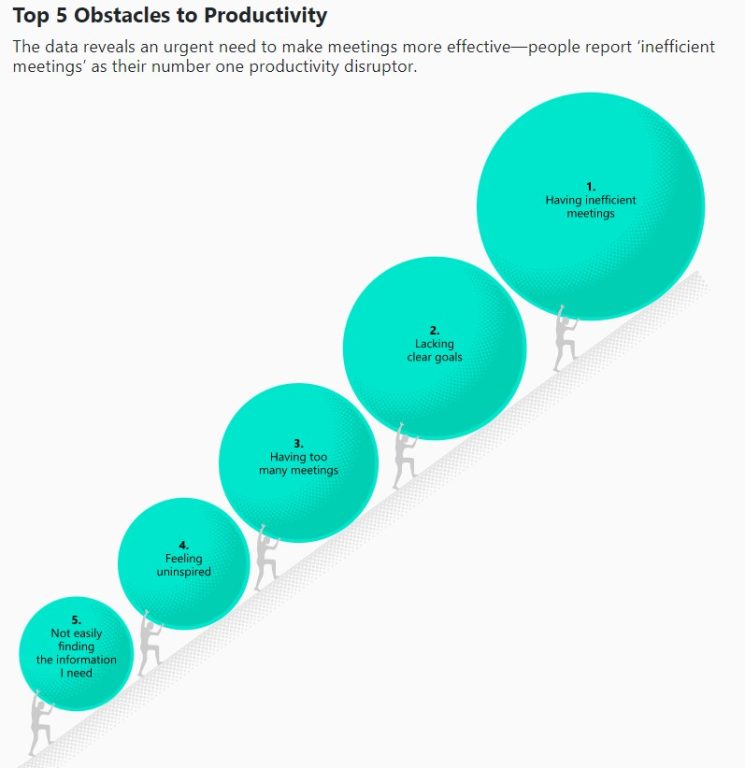AI will be our copilot in the future of work
Rather than steal human jobs en masse.
Why You Should Care
Is AI coming for our jobs?
Microsoft's latest Work Trend Index Report doesn't think so. It sees humans and AI as forming an alliance to make work better.
Here's how.
Employees are facing a “digital debt”, according to the latest Microsoft Work Trend Index report. Thanks to technology, it is easier than ever for people to communicate, but this makes hard for people to focus and get creative.
64% of the 31,000 workers in 31 countries surveyed by Microsoft said they struggle with finding the time or energy to do their job – and leaders are aware (60%).
In fact, 68% of employees said they don’t have enough uninterrupted focus time in the workday, with 62% wasting time searching for information at work.
While constant emails and messages – all of which feel urgent – has an impact on focus time, Microsoft’s data shows that inefficient meetings are the main obstacle to productivity.

Credit: Microsoft, Work Trend Index 2023.
There is clearly an urgent need to make meetings better, and artificial intelligence (AI) is on hand to help, according to Microsoft.
Rather than a meeting being a point in time, AI turns every meeting into a digital artifact that helps organizations embrace asynchronous communication, which is less of distractor for those in focus mode.
The report stated: “Encourage people to leverage AI-powered intelligent meeting recaps, transcripts, and recordings to engage with meetings how and when it works best for them.”
The new human-AI alliance
On the topic of AI, there has been a lot of discussion about whether it is going to steal our jobs.
Microsoft’s view on that is, to date, AI has been on autopilot, but with the new innovations, particularly generative AI, it can be a next-generative ally and copilot. The tech giant is so confident in this prediction that it has launched a new AI product called 365 Copilot for the workplace.
Satya Nadella, CEO and chairman of Microsoft, commented: “This new generation of AI will remove the drudgery of work and unleash creativity”.
Interestingly, the 31,000 employees are more excited for AI’s potential to lift the weight of work (70%) than they are afraid it’ll take their jobs (49%).
And they want support in almost every aspect of work – administration (76%), analytical (79%) and creative tasks (73%), formulating ideas (76%) and diary planning (77%).
Leaders agree; they are optimistic about the potential of AI to transform work for the better. They are twice as likely to use AI to improve productivity than reduce headcount; leaders want to empower people, not replace them.

Credit: Microsoft, Work Trend Index 2023.
Despite this optimism about the bright future of work powered by AI, Microsoft’s report is clear that AI won’t magically fix the challenges at work – it is not a silver bullet.
Employees need learning and development support in areas like AI aptitude, including checking for bias, as well as a range of skills including critical thinking, analytical judgment, complex problem solving, creativity and originality.
The report concluded: “Human-AI collaboration will be the next transformational work pattern—and the ability to work iteratively with AI will be a key skill for every employee.
“Leaders will need to help employees learn to work responsibly alongside AI to reap the rewards of the AI-employee alliance: more value creation for businesses and a brighter, more fulfilling future of work for everyone.”
The world’s HR conference and expo is back! Don’t miss out on UNLEASH World in Paris this October.
Sign up to the UNLEASH Newsletter
Get the Editor’s picks of the week delivered straight to your inbox!

Chief Reporter
Allie is an award-winning business journalist and can be reached at alexandra@unleash.ai.
